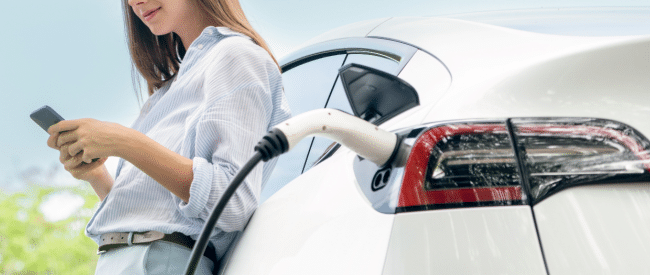Car buying looks a lot different in 2022.
For one thing, used cars are often selling for more than new ones. According to Wall Street Journal reporting, the average price calculated by J.D. Power for a new 2021 vehicle in April, 2021 was $38,585. This January, 2022 used vehicles averaged $48,765.
While the upside-down pricing won’t last once chip shortages and other manufacturing disruptions ease, other trends are likely to permanently reshape the market.
Auto industry executives predict a major shift to online auto sales by 2030, according to Automotive News. Already, 46% of consumers want to minimize dealership visits, preferring online channels for searching car information and purchasing, according to The Cap Gemini Research Institute. These preferences help explain why direct-to-consumer vehicle sales, with buyers bypassing dealers to purchase vehicles, continue to gain traction.
Staying relevant
These changes mean auto dealers and servicers must get serious about digitally engaging customers—before, during and after purchase.
For auto finance companies, staying relevant depends on investing in technology to digitally connect, communicate and cater to vehicle buyers for billing and payments. These recurring touchpoints loom large with consumers long after the sale closes. To deliver the right billing and payments experience that builds satisfaction and goodwill, auto finance companies need to:
- Provide choice and convenience
Three out of four, or 76%, of consumers want to decide which channels their providers use to communicate with them, according to 2020 research from Keypoint Intelligence.
Customer communications management (CCM) technology enables auto buyers to customize how they receive monthly statements, compliance documents and other correspondence. Our Expresso® CCM software gives companies the power to create and distribute paper, email and text communications on a single platform. It also makes it easy to develop personalized messaging.
- Prioritize mobile
Americans spent an average of 4.8 hours a day in 2021 on their phones, up 30% over the past two years, according to App Annie’s State of Mobile 2022 report. Engaging on mobile, then, is essential.
Omnichannel CCM technology can make mobile communications fast, easy and effective. In addition to developing and sending communications by email and text, auto finance companies can automatically upload digital statements into Apple Wallet and Google Wallet on smartphones using ExpressoWallet®. Loan balance and payoff amounts are presented in real-time, with convenient customer connection links to payment portals and push notifications that alert borrowers when a payment is due or has been received.
- Integrate billing and payments
Companies can streamline their operations and improve customer experience when they manage the entire billing and payments cycle on a single cloud platform, such as seamlessly linking Expresso to our ExpressoPay® electronic bill presentment and payments (EBPP) system. ExpressoPay securely enables digital account management and accepts a range of payment methods such as ACH, credit/debit cards, PayPal, or Amazon Pay.
Combining digital billing and payments with interactive voice response (IVR) for phone calls, as ExpressoPay does, further increases consumer convenience. Instead of conforming to call-center hours, IVR lets consumers call any time to pay a bill. Plus, consumers can save time with IVR by creating a profile with payment information that can be used each time they’re ready to pay, eliminating the need to repeatedly enter payment details.
With Nordis, auto finance companies can quickly move to latest CCM technology without a big IT investment or even a big lift from the internal IT department. We provide a turnkey implementation and training process for our cloud-based solution.
Connect with us March 7-10 at the AFSA Vehicle Finance Conference, Kiosk V5, to learn more about how we can help you meet the communications preferences for consumers who finance their vehicle. Schedule a meeting now.







